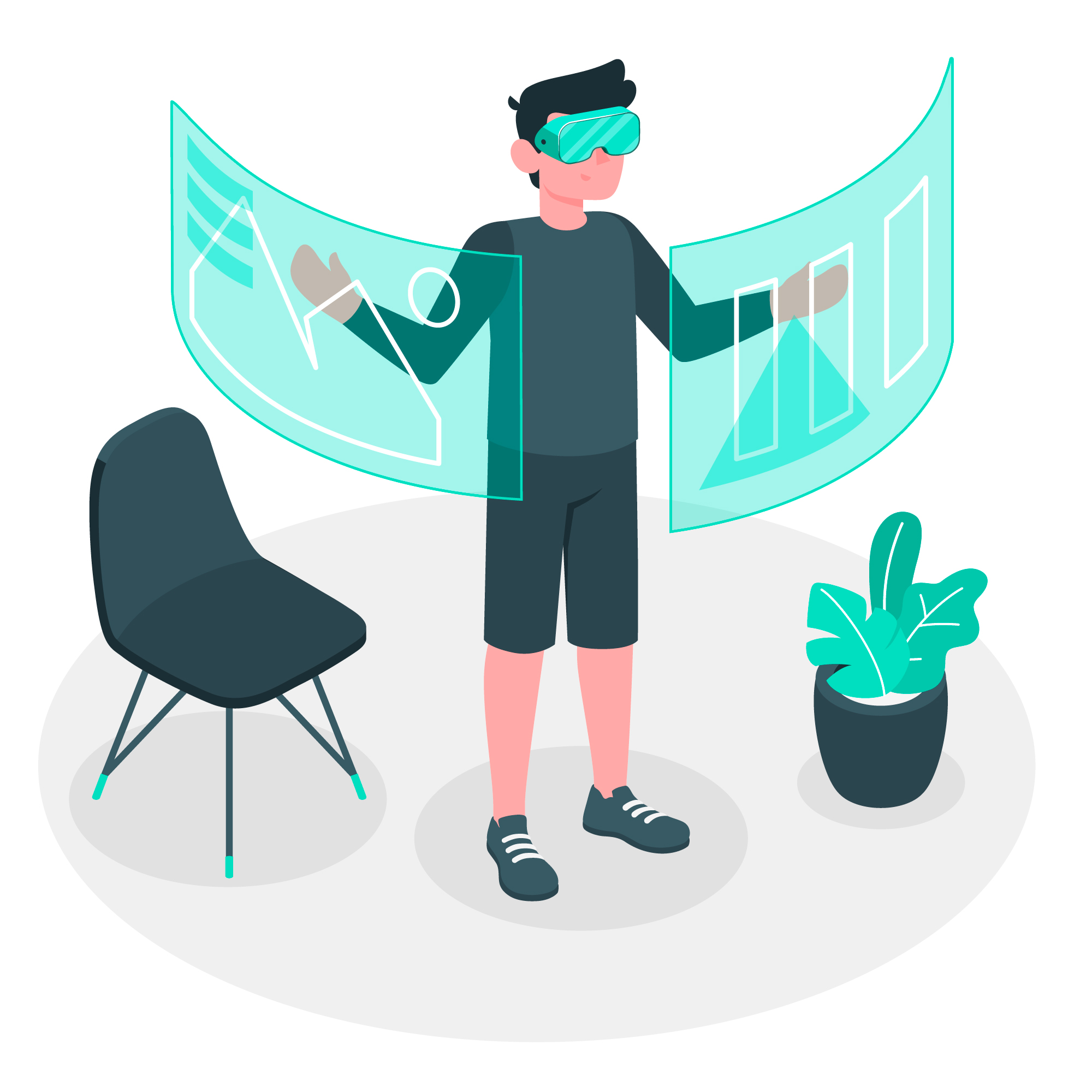How VR Development Services Are Shaping the Future of Digital Interaction
Introduction Virtual Reality (VR) has evolved from a futuristic concept into a mainstream technology reshaping how we interact with the...

Introduction
Virtual Reality (VR) has evolved from a futuristic concept into a mainstream technology reshaping how we interact with the digital world. As businesses and consumers increasingly embrace immersive experiences, VR development services are at the forefront of this transformation. From gaming and education to healthcare and retail, VR is redefining user engagement, offering unparalleled levels of interactivity and realism. In this article, we explore how VR development services are revolutionizing digital interactions and paving the way for the future.
The Role of VR Development Services in Digital Interaction
VR development services encompass a wide range of solutions, including software development, hardware integration, and content creation, to build immersive experiences. These services leverage cutting-edge technologies like AI, 5G, and cloud computing to deliver seamless and interactive digital environments. Companies investing in VR solutions are finding new ways to enhance customer experiences, streamline operations, and foster deeper connections between users and digital content.
Key Industries Benefiting from VR Development Services
1. Gaming and Entertainment
The gaming industry has been a pioneer in VR adoption, with VR development services enabling highly immersive experiences. Advanced game engines and motion tracking technologies allow players to interact with virtual worlds as if they were physically present. Popular VR games like Beat Saber and Half-Life: Alyx demonstrate how VR is pushing the boundaries of interactive entertainment.
Beyond gaming, VR is transforming the entertainment industry, enabling users to attend virtual concerts, explore interactive movies, and experience digital storytelling in unprecedented ways.
2. Education and Training
VR is revolutionizing learning by making education more interactive and engaging. VR development services are helping institutions create virtual classrooms, training simulations, and immersive educational experiences. For example:
- Medical students can perform virtual surgeries before practicing on real patients.
- Engineers can explore 3D models of complex machinery.
- Language learners can engage in realistic conversations in a virtual environment.
Corporate training programs are also leveraging VR for employee skill development, reducing training costs and improving retention rates.
3. Healthcare and Therapy
The healthcare industry is adopting VR development services for medical training, therapy, and patient treatment. VR simulations enable surgeons to practice procedures in a risk-free environment. Additionally, VR-based therapy is being used to treat mental health conditions like PTSD, anxiety, and phobias by exposing patients to controlled virtual environments.
Physical rehabilitation programs also benefit from VR, as patients can perform guided exercises within immersive settings, improving motivation and recovery outcomes.
4. Retail and E-Commerce
E-commerce is undergoing a transformation with VR-powered virtual shopping experiences. Customers can explore virtual stores, try on clothing using VR fitting rooms, and preview furniture placements within their homes before making purchases. Companies like IKEA and Nike are already leveraging VR development services to enhance the online shopping experience, offering more interactive and personalized customer journeys.
5. Real Estate and Architecture
The real estate and architecture sectors are utilizing VR to provide immersive property tours and architectural visualizations. With VR, potential buyers can explore properties remotely, reducing the need for physical site visits. Architects and designers use VR to showcase projects in 3D, allowing clients to experience spaces before construction begins. This improves decision-making and enhances collaboration between stakeholders.
6. Manufacturing and Product Design
VR development is playing a crucial role in product design and prototyping. Engineers and designers can create virtual prototypes and conduct simulations before physical production. This accelerates the design process, reduces costs, and minimizes errors. Automotive companies, for instance, use VR to test vehicle designs, enhancing innovation and efficiency in product development.
Emerging Technologies Enhancing VR Development Services
Several emerging technologies are enhancing the capabilities of VR development services, making digital interactions even more immersive and realistic:
1. Artificial Intelligence (AI)
AI-powered VR systems enable more natural interactions by incorporating voice recognition, facial expression analysis, and gesture tracking. AI enhances personalization, allowing VR environments to adapt to user preferences and behaviors.
2. 5G Connectivity
The advent of 5G networks is improving VR experiences by reducing latency and enabling real-time streaming of high-quality VR content. This enhances multi-user VR environments and supports cloud-based VR applications.
3. Haptic Feedback and Wearable Technology
Haptic gloves and full-body suits are enhancing VR interactions by providing users with tactile feedback, making virtual experiences feel more realistic. These advancements are particularly beneficial for gaming, training simulations, and medical applications.
4. Blockchain and NFTs
Blockchain technology is being integrated into VR platforms to enable secure transactions, digital asset ownership, and decentralized virtual economies. NFTs (non-fungible tokens) are being used to buy and sell virtual real estate, artwork, and digital collectibles within VR spaces.
The Future of VR Development Services
As VR technology continues to evolve, its impact on digital interaction will only grow. Some key trends shaping the future of VR development services include:
- Metaverse Expansion: Companies are investing in metaverse development, creating virtual spaces for work, socializing, and entertainment.
- Cross-Platform Compatibility: VR experiences will become more accessible across different devices, including smartphones, VR headsets, and AR glasses.
- Enhanced Social VR: Virtual reality will drive social interactions, enabling users to attend virtual events, meet in digital spaces, and collaborate in immersive work environments.
- Increased Adoption in Remote Work: VR-based remote work solutions will enhance collaboration, allowing employees to interact in virtual offices and conduct immersive meetings.
Conclusion
VR development services are shaping the future of digital interaction by creating immersive, engaging, and interactive experiences across various industries. As technology continues to advance, the potential applications of VR will expand, further integrating the digital and physical worlds. Businesses that invest in VR development services today will be well-positioned to leverage the next wave of digital transformation, delivering unparalleled experiences to their customers and users.


